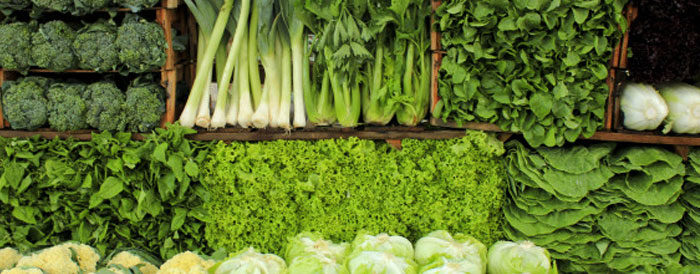Eating one serving of green leafy vegetables per day may help to slow cognitive decline with aging, a new study suggests.
In the prospective study of an older US community population, consumption of green leafy vegetables was linearly associated with slower cognitive decline.
The rate of decline among those who consumed one to two servings per day was the equivalent of being 11 years younger compared with those who rarely or never consumed green leafy vegetables, the researchers say.
Investigation of the nutrients for which green leafy vegetables are a rich or primary source indicated that higher food intakes of folate, phylloquinone, and lutein were each linearly associated with slower cognitive decline and appeared to account for the protective correlation of green leafy vegetables to cognitive change.
“This adds to previous evidence that leafy greens may slow cognitive decline, but we have taken it a step further by investigating which nutrients in these vegetables may be responsible for the protective association,” lead author, Martha Clare Morris, ScD, Rush University, Chicago, Illinois, commented to Medscape Medical News. “And we have identified a few that seem to be important — some of which were not known to associated with brain heath before.”
“Our main take-home message is that leafy greens contain so many good nutrients, several which are linked to better cognitive function,” she added, “so this is a food that should definitely be a staple in everyone’s diet, particularly older individuals.”
The study was published online in Neurology on December 20.
Other experts in the field were enthusiastic about the findings.
Source: Medscape Medical News


